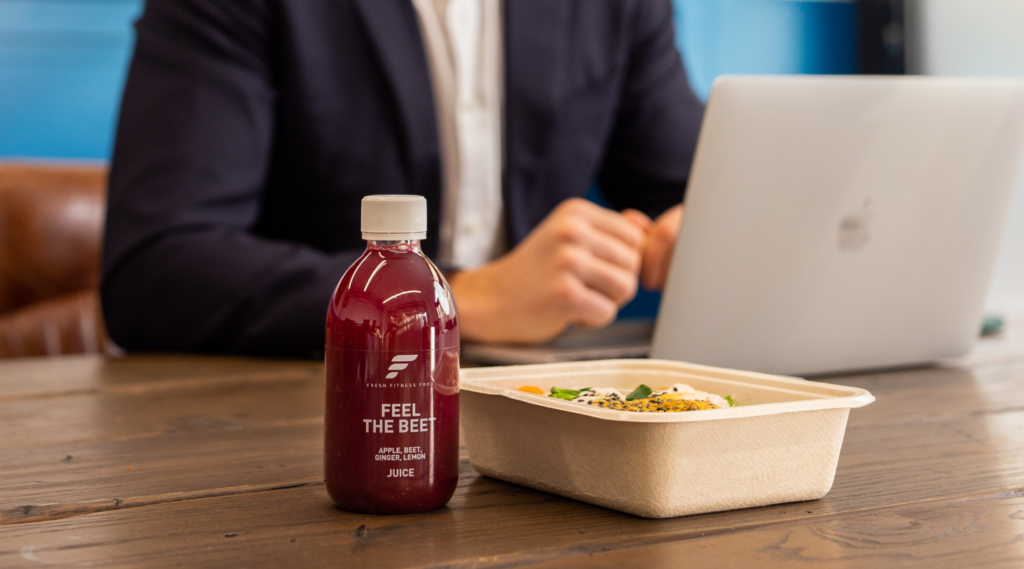5 tips to help you navigate Veganuary in 2024

As January unfolds, many individuals around the world are embracing a transformative and compassionate lifestyle change and taking part in Veganuary.
This global movement, dedicated to promoting a plant-based diet throughout the month of January, has gained tremendous momentum in recent years. Whether you’re a seasoned vegan, a curious flexitarian, or someone simply seeking a healthier and more sustainable way of living, Veganuary offers a unique opportunity to explore the rich and diverse world of plant-based cuisine.
It’s a wonderful chance to promote veganism and everything it stands for, but it can be daunting for those embarking on the journey with no previous experience. If you’re a well-seasoned Veganuary-er, you’ll know the lay of the land already, but if Veganuary is unchartered territory for you, we’ve pulled together our top tips from our Nutritionists who have undertaken Veganuary before, that will help you navigate the month that lies ahead.
1. Know your labels:
First and foremost, get to know your food labels. While a lot of packaged food is veggie, you’d be surprised by how much egg white or milk powder is thrown into the ingredient lists. Therefore, making it unsuitable for vegans.
Look out for the Vegan trademark to show that what you’re looking at is certified vegan. Also, be wary of products like beer and wine, that are often not vegan and don’t have readily available ingredient lists (although Google can assist you here).
2. Don’t give in if you slip up
While you’re getting used to knowing which products are and aren’t vegan, there may be some accidental slips. This is fairly common with new vegans or Veganuaryers. Even die-hard vegans slip up occasionally!
If you do slip up, don’t be disheartened – acknowledge it as an accident and make sure to double-check the labels going forward.
3. Know your plant-based proteins
A common pitfall with vegan diets is solely eating meat replacements. While they are incredibly helpful if you’re craving something a bit meatier, like a burger, it’s best not to eat them every day. Make sure you’re getting in plenty of fruit and veg and plant-based proteins, and recognise the differences between plant-based and animal proteins.
4. Get creative in the kitchen
Eating vegan doesn’t have to be bland, despite what a lot of meat lovers seem to think! Try to replicate some of your favourite meals with vegan alternatives. There are lots of great ways of replicating meat with plants. For example, these vegan gyros made from king oyster mushrooms!
You can use this as a chance to try out new recipes as well. Take a look at some vegan recipe creators on TikTok and Instagram, vegan blogs, or borrow or buy vegan cookbooks! Contrary to popular belief, vegan recipes are often much more flavourful, it’s just that meat is missing.
5. Be open-minded
Arguably the most important point – approach each day of the challenge with an open mind. If you view it as a chore that you have no choice in, thinking you will despise every second, you almost definitely will. View it as an opportunity to develop your cooking skills, try new cuisines, and challenge yourself!
Of course, we’re here for you if you think you might have bitten off more than you can chew! Our plant-based plans are designed to provide you with complete vegan proteins and nutritionally balanced meals, without you having to get out a chopping board!
Get £50 off a 5-day trial with code: BLOG50. Start your trial here!
- Rethinking Happy Hour: The Science Behind Alcohol and Health - January 23, 2025
- The Truth About Carbs: Breaking Down the Science Behind This Vital Nutrient - January 15, 2025
- Detoxing vs. Nourishing: The Science of Post-Holiday Resets - January 3, 2025